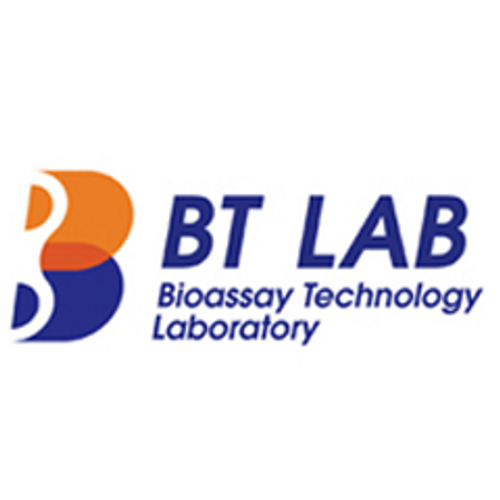Product Description
Pig Triggering receptor expressed on myeloid cells 1 (TREM-1) ELISA Kit | AE13485PI | Abebio
Species Reactivity: Pig (Sus scrofa; Porcine)
Abbreviation: TREM1
Alternative Name: TREM-1; triggering-receptor TREM1
Application: ELISA
Range: 31.25-2000 pg/mL
Sensitivity: 12.4 pg/mL
Intra-Assay: ≤6.8%
Inter-Assay: ≤9.4%
Recovery: 1, 11
Sample Type: Serum, Plasma, Other biological fluids
Detection Method: Sandwich
Analysis Method : Quantitive
Test Principale: This assay employs a two-site sandwich ELISA to quantitate TREM1 in samples. An antibody specific for TREM1 has been pre-coated onto a microplate. Standards and samples are pipetted into the wells and anyTREM1 present is bound by the immobilized antibody. After removing any unbound substances, a biotin-conjugated antibody specific for TREM1 is added to the wells. After washing, Streptavidin conjugated Horseradish Peroxidase (HRP) is added to the wells. Following a wash to remove any unbound avidin-enzyme reagent, a substrate solution is added to the wells and color develops in proportion to the amount of TREM1 bound in the initial step. The color development is stopped and the intensity of the color is measured.
Product Overview: TREM-1 is a Type I membrane protein that contains an immunoglobulin-like V-type domain. An alternatively spliced protein variant may be secreted. TREM-1 is expressed in monocytes and neutrophils but not in lymphocytes, dendritic cells or other cell types. TREM1 expression can be further upregulated by bacteria, fungi and lipopolysaccharide. TREM-1 is a glycoprotein that is reduced by deglycosylation, in agreement with the predicted molecular mass. TREM-1 is an activating receptor of the Ig superfamily that is highly expressed on peripheral blood myeloid cells (particularly mature monocytes and granulocytes) . TREM1 has been shown to interact with the adaptor protein DAP12 to stimulate neutrophil and monocyte-mediated inflammatory responses through the triggering and release of pro-inflammatory cytokines and chemokines.
Stability: The stability of ELISA kit is determined by the loss rate of activity. The loss rate of this kit is less than 5% within the expiration date under appropriate storage condition. The loss rate was determined by accelerated thermal degradation test. Keep the kit at 37°C for 4 and 7 days, and compare O.D.values of the kit kept at 37°C with that of at recommended temperature. (referring from China Biological Products Standard, which was calculated by the Arrhenius equation. For ELISA kit, 4 days storage at 37°C can be considered as 6 months at 2 - 8°C, which means 7 days at 37°C equaling 12 months at 2 - 8°C) .
 Euro
Euro
 USD
USD
 British Pound
British Pound
 NULL
NULL








